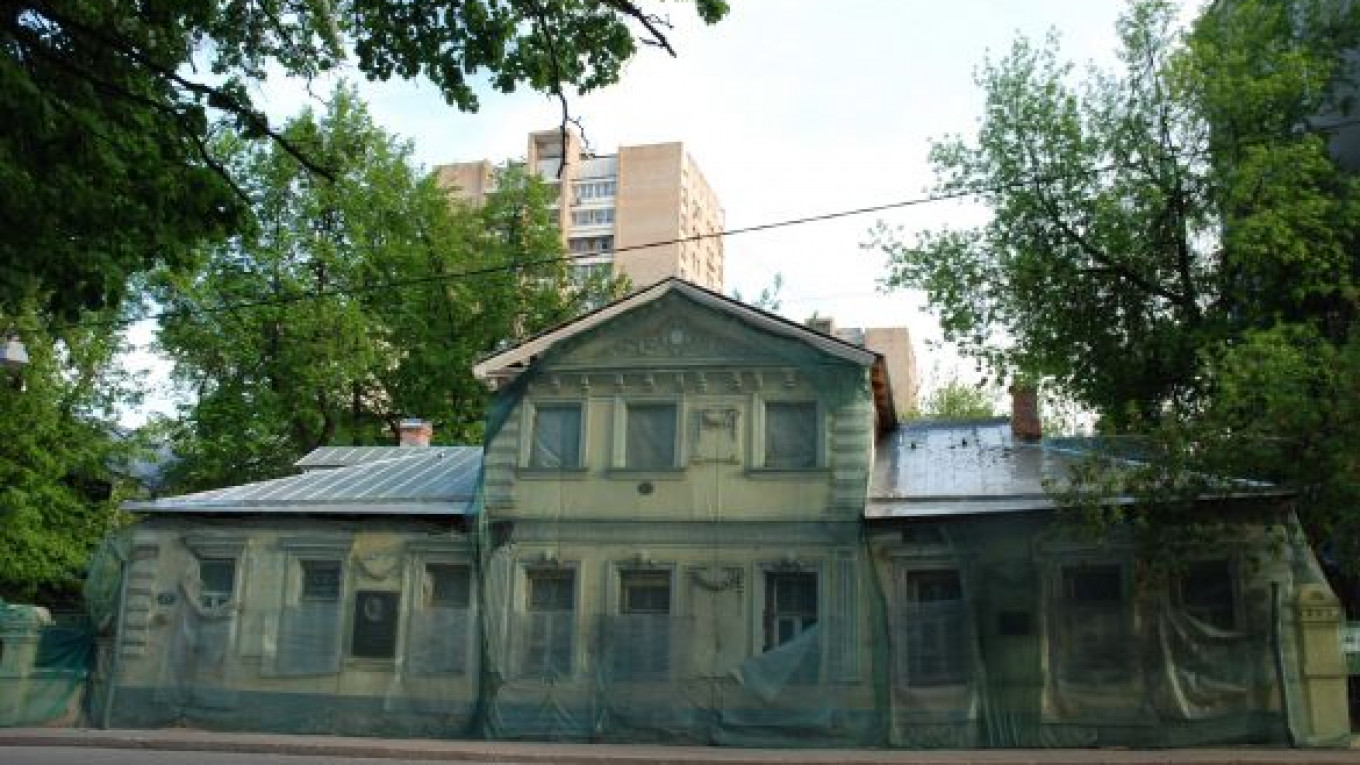Russia’s leading preservationist campaign group Arkhnadzor has called on the public to gather Saturday in protest of what they say is an attack on the country’s cultural heritage.
Meetings for the “day of unity for the defense of cultural heritage” will be held in Moscow, St. Petersburg, Yaroslavl, Kazan, Tula and Pskov to protest two proposed amendments to Russia’s heritage law that the State Duma Cultural Committee will consider on Dec. 22.
The proposed changes would make it easier to demolish historical buildings, preservationists say. One amendment would legalize the “reconstruction” of architectural monuments, and the other would make it possible for the Culture Ministry to delist a protected building, which can currently only be done by a special act of government.
More than 20 leading restorers, preservationists and architectural historians wrote in a letter to President Dmitry Medvedev that the amendments “place tens of thousands of monuments of cultural heritage under threat of irreversible distortion and even destruction.”
Russia loses 250 historical and cultural monuments ever year, Arkhnadzor says.
Former Mayor Yury Luzhkov was widely criticized for allegedly employing crude reconstruction techniques on major buildings, such as the Tsaritsyno palace in southern Moscow.
One typical technique in Moscow is to expand a protected building by adding extra floors or in some cases even putting a new building around it.
Although the country’s conservation laws are strict, such often illegal cases do happen. The proposed amendment would appear to legitimize this approach, said Natalya Samover, a coordinator at Arkhnadzor.
Moscow lost 2,000 buildings during Luzhkov’s 18-year tenure, at least 200 of which were listed as architectural or newly declared monuments, Arkhnadzor said.
“We are against reconstruction; we are for restoration of these monuments,” said Rustam Rakhmatullin, a coordinator at Arkhnadzor.
Architects criticized reaction to the amendments at a round table organized by the Izvestia newspaper Wednesday.
“Personally I don’t see anything horrible in the word ‘reconstruction.’ For example the Bolshoi Theater has undergone a reconstruction combined with a restoration,” said Yakov Sarkisov, former head of reconstruction at the Bolshoi Theater, questioning how much a building protected by the state can be changed. “Can we close off a courtyard? On one hand, we are changing the face of a listed building. On the other, we are physically protecting [it].”
Preservationists have fiercely criticized the work on the Bolshoi Theater.
The amendment on reconstruction was put forward by Viktor Pleskachevsky, chairman of the State Duma Property Committee. Arkhnadzor’s Rakhmatullin said he believes that the St. Petersburg city administration is behind the initiative.
The wording of the amendment was softened earlier this week with the removal of the word “reconstruction,” but campaigners say they still consider it dangerous.
“We see the state refusing to fulfill its constitutional duties to protect [our heritage]. We see many architects acting only as agents of investors. They need to become agents of society,” said Galina Malanicheva, head of the central council of the Russian council for preservation of historical and cultural monuments.
Protesters will gather by the statue of writer Alexander Griboyedov outside the Chistiye Prudy metro station on Saturday from 2 to 3:30 p.m.
A Message from The Moscow Times:
Dear readers,
We are facing unprecedented challenges. Russia's Prosecutor General's Office has designated The Moscow Times as an "undesirable" organization, criminalizing our work and putting our staff at risk of prosecution. This follows our earlier unjust labeling as a "foreign agent."
These actions are direct attempts to silence independent journalism in Russia. The authorities claim our work "discredits the decisions of the Russian leadership." We see things differently: we strive to provide accurate, unbiased reporting on Russia.
We, the journalists of The Moscow Times, refuse to be silenced. But to continue our work, we need your help.
Your support, no matter how small, makes a world of difference. If you can, please support us monthly starting from just $2. It's quick to set up, and every contribution makes a significant impact.
By supporting The Moscow Times, you're defending open, independent journalism in the face of repression. Thank you for standing with us.
Remind me later.






